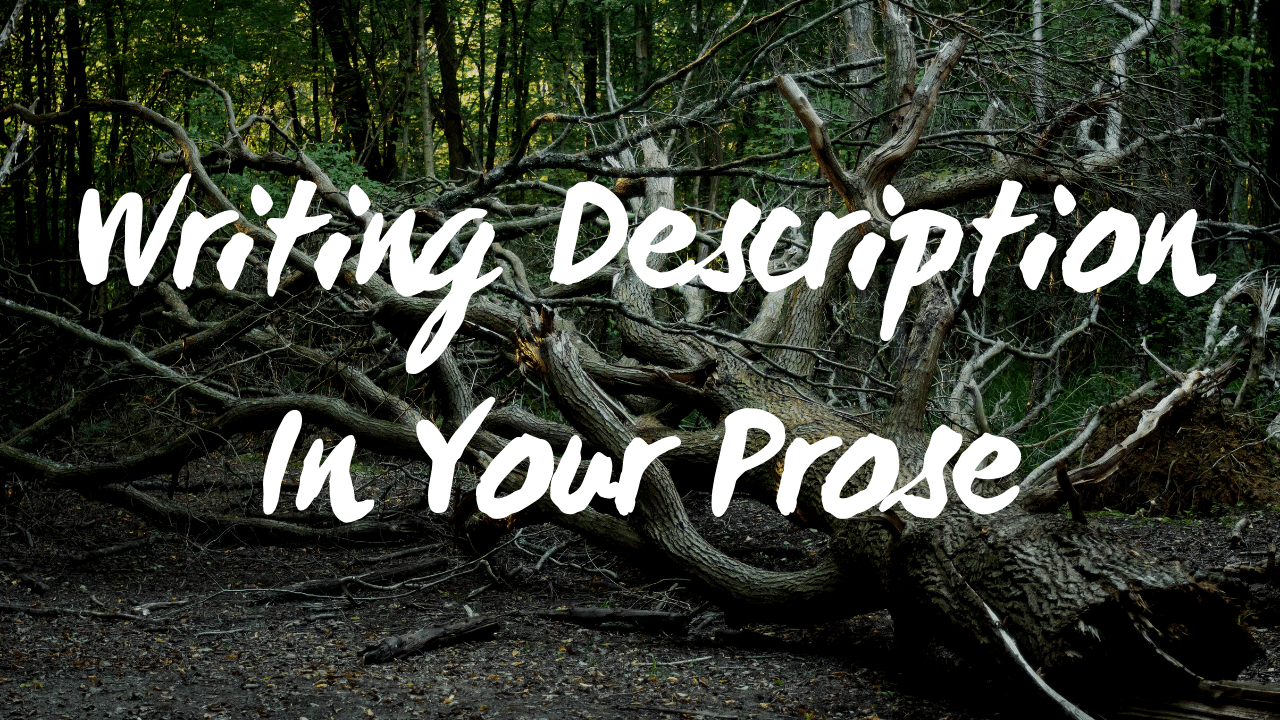As an Amazon Associate I earn from qualifying purchases.
Written by JJ Barnes
Writing effective and interesting prose is something we all have to work on to be good writers. Too much and it’s boring and tedious. Too little and it’s too sparse and you don’t feel like you know the characters feelings or the environment they’re in well enough.
If you look at the work of Stephen King, he is very heavy on the prose and he describes a lot. There is a lot of description in his books, and a lot of words, which is one of the reasons why they’re so long.
Stephen King also has far wider and more complex plotlines than a lot of writers. His books can be considered very slow because of it. But he’s incredibly popular and that style is obviously appealing to those who love his work.
What is Your Personal Style?
Personally, I prefer to both read and write books that aren’t as detailed. I like a story that moves more quickly so I write less prose and I’m more focused on the action. Too much description irritates me because it gets in the way of the story I came for.
Essentially, there is no hard and fast rule so you can put as much or as little in as suits your personal style. What will appeal to one person won’t appeal to somebody else.

Avoid Too Much Description By Focusing On Characters

When it comes to choosing what you should include in your descriptions, it’s a good idea to remember to focus on what your characters care about. People don’t necessarily care what colour the curtains are in the room, but they care about how the character feels. If the colour of the curtains affects how the character feels, such as by triggering a memory, then it’s relevant and worth mentioning, otherwise it should be left out.
When deciding what to write about, look at which character you’re in the POV (point of view) of. Your descriptions of the room, the people, the weather etc should be relevant to your POV character. How they feel about those things. If they don’t feel anything, it’s not interesting and doesn’t need including.
For instance, if the room your character walks into has seven chairs. and three pictures on the wall, and blue curtains, and the curtains have a slight speckled pattern… nobody cares. But who is sitting in those chairs, that is interesting. How your characters mood or emotions are effected by what’s in the room, that’s interesting. If the look of the room is irrelevant to your character, keep descriptions minimal. Too much description can turn interesting world building into tedious and dull homework.

What Ivy Wants

In the book I’m working on right now, we are in the POV of the Protagonist Ivy. She has lost her job and her husband has left her so she moves back home to live with her parents whilst she gets back on her feet. When she goes into her old bedroom, there’s a McFly poster on the wall. She is reminded of being a teenager again and coping with being back in her childhood bedroom. It triggers an emotional response about having moved backwards in her life.
I focus on the McFly poster because the other things on the walls aren’t interesting. It’s the poster she used to love that triggers the emotional response in Ivy. The memories and feelings are what is interesting to the audience.
You wouldn’t walk into your childhood bedroom and think “Oh, the carpet is a slightly olive shade of green”. What you look at and focus on are the things that trigger an emotional response.
Unholy Water
In Unholy Water by Jonathan McKinney, there is a moment when one of the main characters, Jack, is walking outside in October. He is frustrated by the lack of chill in the air and impatient for the season to change. He wants change, he is frustrated by his place in the world. Rather than just describing what the weather is like, it’s described through the characters own perception of it and what it represents to him.

Entertaining Prose Focus On Feelings Not Too Much Description
Focusing on the character’s feelings is the key to writing good prose. How much or little you actually write and how deeply you dive into those feelings and what they mean, is really a matter of personal taste. If you find a readership that likes your personal style, whether it’s very descriptive or not, then they will happily go with you. For all the people who love Stephen King because of his long and complex plots and deep descriptions, there is an entire audience out there who hate his work for the exact same reasons.
Ultimately, as long as you write well there is no actual rule. Just focus on your character’s feelings and write something you would want to read.
More From JJ Barnes:
I am an author, filmmaker, artist and youtuber, and I am the creator and editor of The Table Read.
You can find links to all my work and social media on my website: www.jjbarnes.co.uk
Buy my books: www.sirenstories.co.uk/books
Follow me on Twitter: @JudieannRose
Amazon and the Amazon logo are trademarks of Amazon.com, Inc, or its affiliates.


